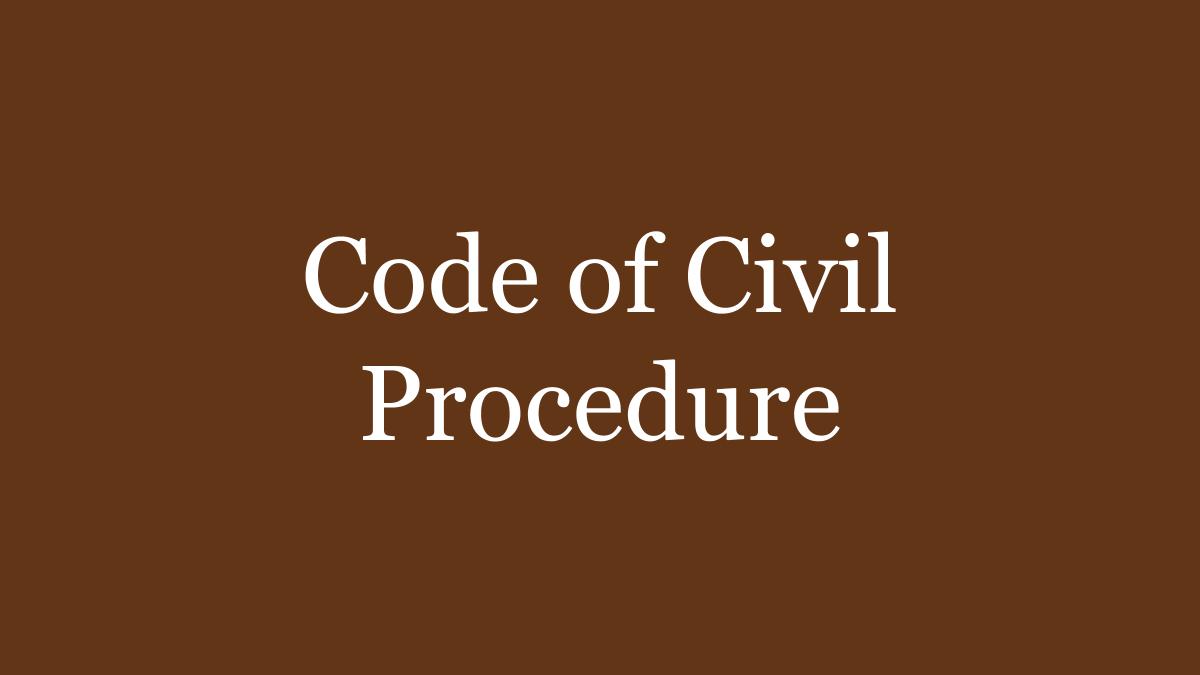The provisions of Order XI Rule 1(1)(c)(ii) CPC, permits the plaintiff to file documents in answer to the case set up by the defendant subsequent to the filing of the plaint. This was held by Hon’ble Justice Asha Menon in the case of Valo Automotive Pvt. Ltd. Vs. Sprint Cars Pvt. Ltd. and Ors. on the 18th of August, 2021 before the Hon’ble High Court of Delhi.
The brief facts of the case are, The petitioner/plaintiff had filed a suit bearing CS No.1299/2018 against Sprint Cars Pvt. Ltd., for the recovery of Rs.31,65,271/- along with the interest. The petitioner claims that certain documents and statement of accounts were already placed by it on the record. Summons were issued to the respondents/defendants and they filed their first appearance on 18th October, 2018. They took time to file written statement. In the meantime, on 27th November, 2018, the court referred the matter to the Mediation Centre, Saket Court, for attempting an amicable settlement between the parties, which however, failed. The suit then continued in the court and on 21st December, 2018, the respondents filed their written statement. The case was then fixed for filing of replication. On 11th March, 2019, the petitioner filed the compilation of rejoinder affidavit to the written statement along with an application under Order XII Rule 6 read with Order VIII Rules 3, 4 & 5 CPC for judgment on admission. An application under Order VI Rule 17 CPC was also filed for amending the plaint. The application under Order VII Rule 14 CPC was filed for bringing on record documents, such as, further invoices, to substantiate the amendment sought, which was for enhancing the suit claim from Rs.31,65,271/- to Rs.39,03,396/-. There was no change brought to the remaining part of the plaint. By the impugned order, the learned Trial Court rejected the application for amendment observing that since the amendment would be resulting in allowing the claim, which was relinquished by the plaintiff at the time of filing of the suit, it could not be allowed. The present petition has been filed being aggrieved by the order dated 15th March, 2021, whereby, its applications under Order VI Rule 17 and under Order VII Rule 14 of Code of Civil Procedure, 1908 for amendment of the plaint and for placing on record the additional documents respectively, were dismissed.
The counsel for the petitioner submitted that, the learned Trial Court had misdirected itself in holding that the amendments were belated and that the petitioner had given up the claim that it was belatedly seeking to incorporate in the plaint. The learned counsel submitted that there was no material change to the nature of the suit, as the only amendment that was sought, was the enhancement of the total sum of the claim from Rs.31,65,271/- to Rs.39,03,396/-. It was further submitted that the amendment had been sought at the earliest, as time had been spent, not due to the fault of the petitioner, but, as the matter had been pending before the Mediation Centre. The counsel for the respondents submitted that, the orders of the learned District Judge, Commercial Court, was in accordance with law and no ground was made out for allowing the amendment. It was submitted that the suit had originally been filed for Rs.31,65,271/-. The bills and invoices now sought to be placed on the file were available to the petitioner even at the time of filing of the suit. It was submitted that having all the documents with them, the petitioner nevertheless, chose to file the suit for a lesser amount. In these circumstances, the learned Commercial Court, had rightly concluded that by filing a suit for a lesser amount, the petitioner had given up the claim for the remaining amount.
The learned judge heard the submissions of both the parties and observed that, Order VI Rule 17 CPC permits the court to consider and allow amendments to pleadings, as may be necessary, for the purpose of determining the real question in controversy between the parties. Where the application is moved after the trial has commenced, even then the court may allow amendments, on being satisfied that the averments sought to be introduced by way of amendments were not included in the pleadings at the initial stage despite due diligence. The petition was allowed by holding, “In the present case, not only has the trial yet to commence, the suit is at a very preliminary stage. The learned Commercial Court had granted to the petitioner/plaintiff an opportunity to file the replication. That is when the liberty to file documents and amendments were sought. Moreover, the amendment is not seeking to change the nature of the suit, which remains one for recovery. The petitioner/plaintiff cannot be denied an opportunity to meet the claim of the respondents/defendants raised in the written statement that there were no invoices or bills raised. In order to allow the court to determine fully the dispute between the parties, it is the considered view of this Court that the amendments are necessary. Effective adjudication of the controversy and avoidance of multiplicity of judicial proceedings are factors that have to be considered. The learned Trial Court has referred to the provisions of Order XI Rule 5 CPC, as applicable to the commercial disputes. But, it has overlooked the provisions of Order XI Rule 1(1)(c)(ii) CPC, which permits the plaintiff to file documents in answer to the case set up by the defendant subsequent to the filing of the plaint. The precise case of the petitioner/plaintiff is that when the respondents/respondents denied that invoices were ever raised, the application was moved to bring the invoices on record. Under Order XI Rule 5 CPC, the court can grant leave to the plaintiff to file documents, not filed with the plaint. The learned Commercial Court erred in over-looking these provisions of the CPC.”


